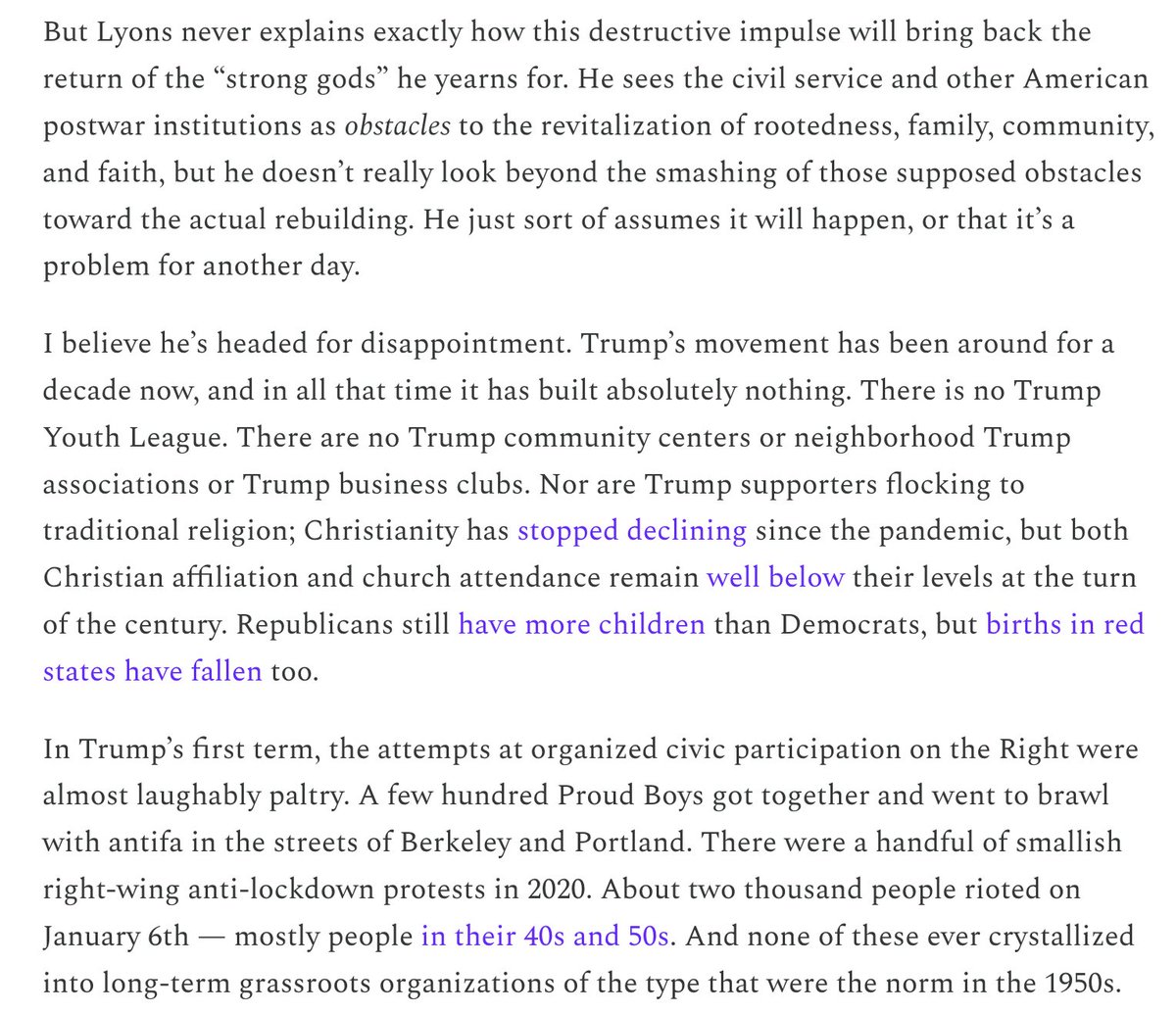It's a "lasting" disadvantage that has currently lasted for six years (since the last Dem Senate majority) or ten (since the last time Dems had a supermajority), and it may not outlast 2020.
https://twitter.com/DKThomp/status/1308065912185073665
The Senate's rural bias disadvantages a very specific Democratic Party ideological formation that has existed since the middle of the Obama presidency.
The electoral college, meanwhile, disadvantages the Democratic Party formation that existed in 2016, but not the formation that existed in 2012, 2008 or 2004.
The Trump-era GOP enjoys a lot of countermajoritarian advantages that liberals have good reasons to attack, but several of those advantages are a feature of a *very* short span in US politics, and an ideological alignment that may not even last through the coming election.
• • •
Missing some Tweet in this thread? You can try to
force a refresh








